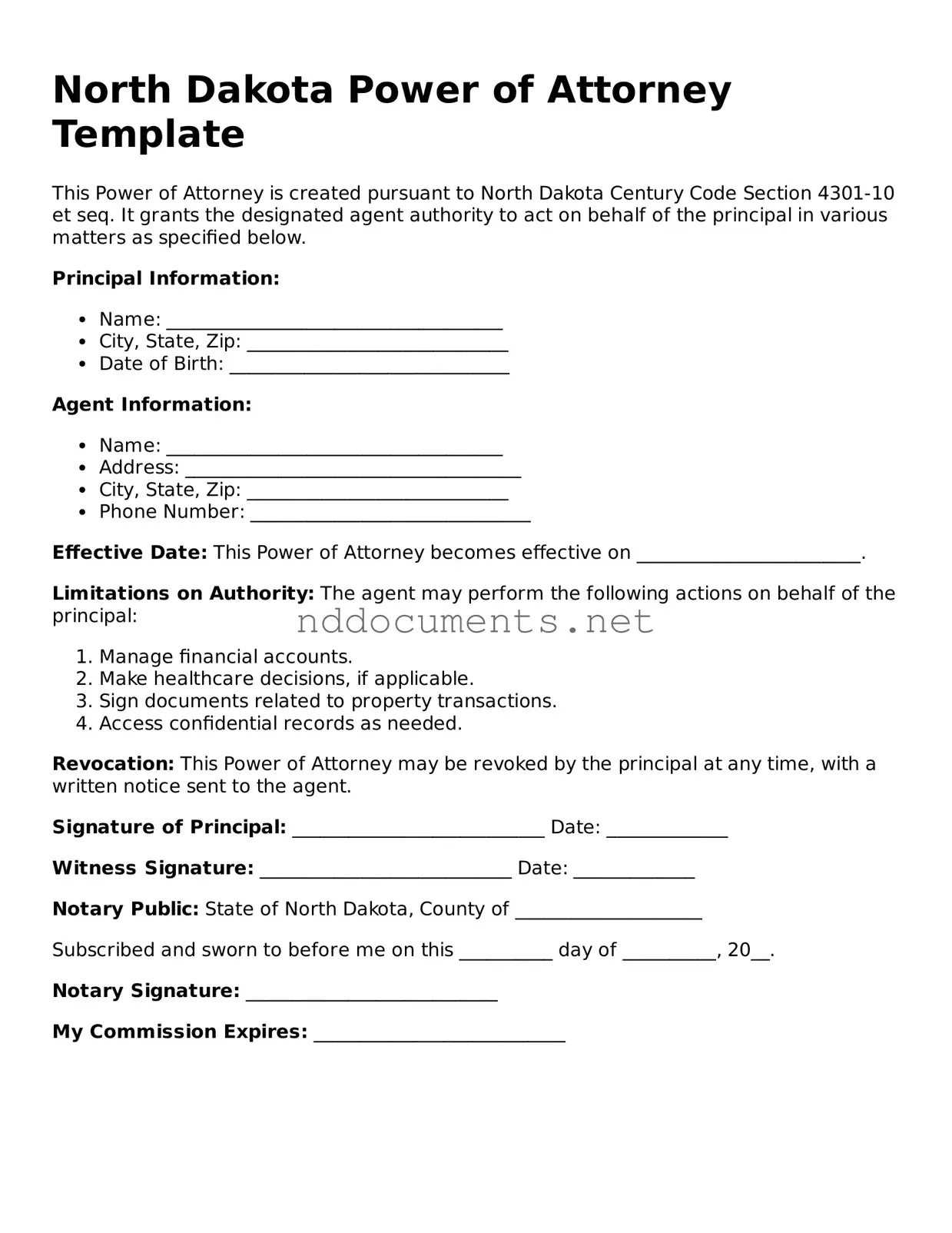Fillable Power of Attorney Document for North Dakota
The North Dakota Power of Attorney form is a legal document that allows an individual, known as the principal, to designate another person, referred to as the agent, to act on their behalf in financial or medical matters. This form serves to empower the agent to make decisions and manage affairs when the principal is unable to do so. Understanding the implications and requirements of this document is essential for ensuring that one's wishes are respected and upheld.
Make Your Document Online

Fillable Power of Attorney Document for North Dakota
Make Your Document Online

Make Your Document Online
or
➤ Power of Attorney
Don’t walk away from an unfinished form
Finish Power of Attorney online quickly from start to download.